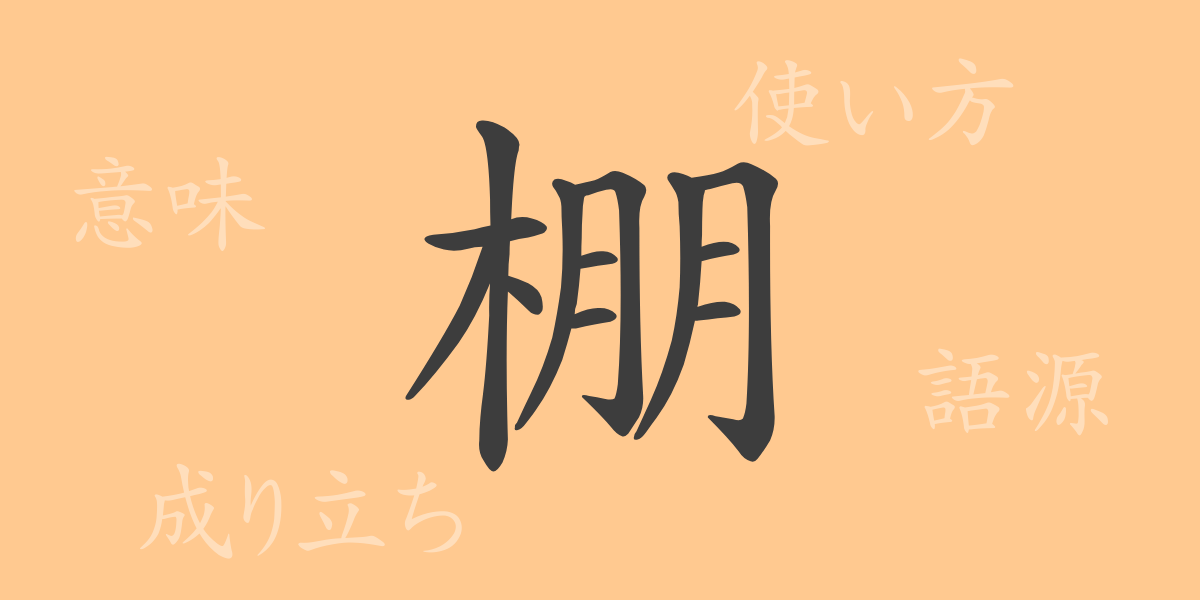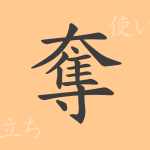In Japanese culture, the concept of ‘棚’ (たな) (tana) transcends mere furniture. Since ancient times, it has organized our living spaces and played various roles in stories and expressions. This article delves into the commonly used kanji ‘棚’, exploring its origins, meanings, applications, and the phrases and proverbs associated with it.
Origins of ‘棚’ (たな) (tana)
The journey into the origins of ‘棚’ lets us appreciate the depth of history embedded in kanji. This character is composed of ‘木’ (き) (ki), representing wood, and two ‘口’ (くち) (kuchi), symbolizing items. In ancient China, it referred to a stand or frame for placing objects, which is considered the prototype for modern shelves.
Meaning and Usage of ‘棚’ (たな) (tana)
In modern Japanese, ‘棚’ commonly refers to a piece of furniture for placing items. There are various types of shelves, including bookshelves, cupboards, and shelves within closets for clothes. The word is also used metaphorically in expressions like ‘手が届かない棚にあげる’ (てがとどかないたなにあげる) (te ga todokanai tana ni ageru), which means ‘to aim for a high position or goal that is out of reach.’
Readings, Stroke Count, and Radical of ‘棚’ (たな) (tana)
‘棚’ has several readings in Japanese, but here are the basic ones:
- Readings: On’yomi ‘ホウ’ (Hou), Kun’yomi ‘たな’ (tana)
- Stroke Count: 12 strokes
- Radical: 木 (きへん) (kihen)
Phrases, Idioms, and Proverbs Using ‘棚’ (たな) (tana) and Their Meanings
There are many idioms and proverbs that include ‘棚’ in Japanese. For example, ‘棚からぼた餅’ (たなからぼたもち) (tana kara botamochi) represents unexpected good fortune without effort, and ‘棚に上げる’ (たなにあげる) (tana ni ageru) means to put a topic or issue on hold. These expressions illustrate how deeply ingrained ‘棚’ is in daily life.
Summary on ‘棚’ (たな) (tana)
The kanji ‘棚’ not only conveys its functional significance as suggested by its form but also holds cultural value, as seen in various Japanese idioms and proverbs. By understanding the diverse aspects of this character, we can appreciate the richness of the Japanese language even more.

























